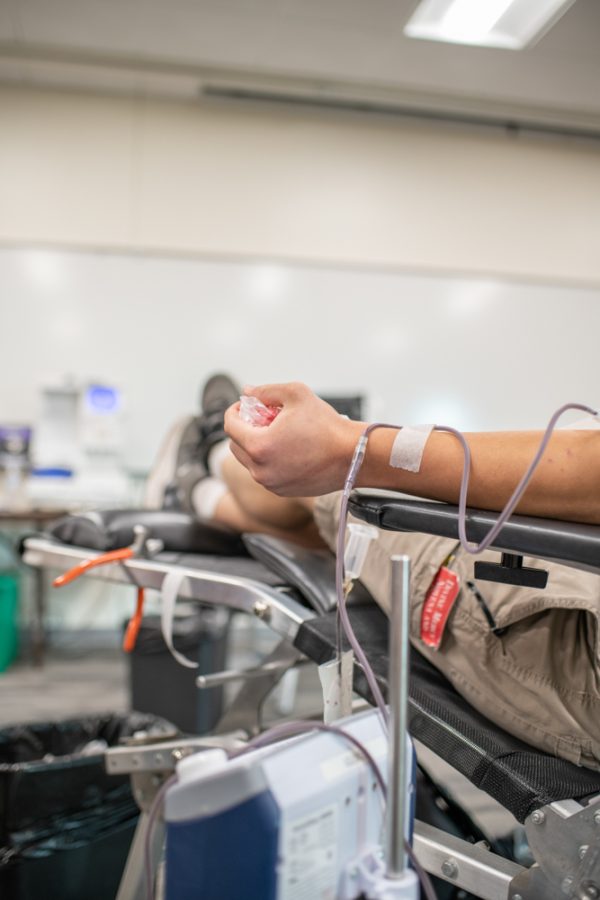On-campus, off-campus entities partner with GV to encourage blood donation
Nov 7, 2022
Against the background of turbulent times for the United States’ blood supply, entities both on and off campus have partnered with Grand Valley State University to offer opportunities for the campus community to donate blood.
On Nov. 1, GVSU partnered with Versiti of Michigan, a blood donation organization that strives to “improve the health of patients as the national leader in innovative transfusion solutions for healthcare systems,” according to their website. At the blood drive, students could stop by the clinic to donate blood in a sterile, safe environment. Donors must pass a brief eligibility screening, and if they are cleared to proceed, the student donates about one pint of blood along with a few small test tubes for blood testing in the labs.
Other blood donation entities at GVSU have striven to have the same impact.
Emily Murray, the president of GVSU’s American Red Cross Club, has helped lead efforts to encourage campus blood donation.
“During past GVSU blood drives, about 30 to 40 units of blood are collected each time,” Murray said.
Once blood is collected from the donor it’s processed, tested for blood type and diseases, stored in secure refrigerators, then shipped to hospitals that require it. The blood collected from patients can either be transfused as whole blood, red blood, plasma, or platelets. Blood donation is a streamlined, easy process on the side of the donors that holds the opportunity to help save lives.
According to The American Red Cross website, “every two seconds, someone in the U.S. needs blood. It is essential for surgeries, cancer treatment, chronic illnesses and traumatic injuries. Whether a patient receives whole blood, red cells, platelets or plasma, this lifesaving care starts with one person making a generous donation.”
Murray offered advice for students who are considering donating at the next blood drive.
“I would say to stay hydrated, wear comfy clothes and try to relax,” Murray said. “You can bring music to listen to during your donation, too. Also, it is completely safe to donate. The needles are new and sterilized, so there is no risk of getting infectious diseases and only one pint of blood is taken during donations.”
Hillary Stroud, an American Red Cross employee, said that donors who may be uncomfortable in the presence of needles and blood to not watch the process, and instead distract themselves with music or conversation.
Giving blood can help save more than one life; patients who receive donors’ blood range from those who have been in car accidents to those who are undergoing chemotherapy.
Nationwide, hospitals are facing a blood shortage. Restrictions due to COVID-19 have led to a decrease in blood drives. Such was emphasized on Jan. 11, when the Red Cross declared a national blood crisis and enacted an emergency appeal for blood donors.
Blood suppliers have placed restrictions on how much blood hospitals can order to ensure that a greater number of hospitals can receive blood. This causes surgeries to be delayed or issues in mass casualty scenarios.
Sarah Barnhard, the Medical Director of Transfusion Services at UC Davis Health, implored Americans that any amount of blood is appreciated at this point.
“If you are a donor, or eligible to become one, please donate at a location near you,” Barnhard told UC Davis Health in February. “Any donation – wherever donated – will help sustain this important product for patients.”
On Dec. 2 GVSU and Versiti are collaborating to host another blood drive. The clinic will be held in the Kirkhof Center Room 2263 from 10 a.m. to 3 p.m.






















